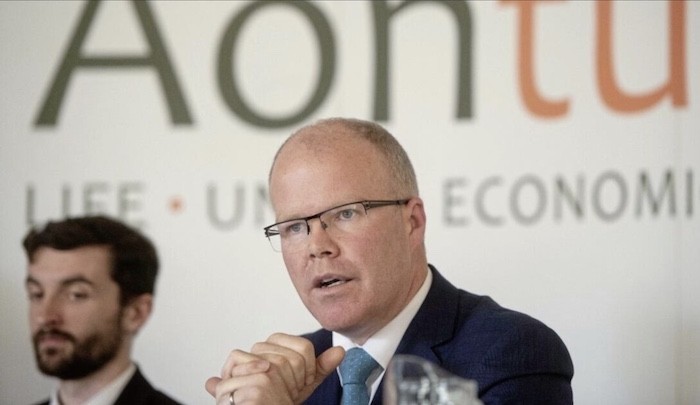
[Want even more content from FPM? Sign up for FPM+ to unlock exclusive series, virtual town-halls with our authors, and more—now for just $3.99/month. Click here to sign up.]
There is a rising tide of anti-immigration sentiment in Ireland: “‘We’re being taken for fools’: How soaring migration came back to bite Ireland’s political elite,” by Michael Murphy, Telegraph, March 30, 2025:
By early 2025, the impact was undeniable: tourist visits to Ireland had dropped 30 per cent year-on-year. Spending fell even further. “I was called a fascist, a Nazi – now the taoiseach says illegal migration is out of control,” Treyvaud says. “The same thing I was saying 18 months ago.”
The government appeared slow to grasp the scale of public discontent. As far back as February 2024, immigration had already overtaken housing as the nation’s top concern. A poll found more than a third of voters would support a hardline immigration party.
A hostile electorate and legal challenges softened the government’s approach. It held off on placing asylum seekers in areas where locals had protested, and issued more muscular statements on the need for deportations.
The election showed that discontent [with immigration] was deeply entrenched. All three major parties – including the ostensibly nationalist but pro-mass-migration Sinn Féin – lost vote share or stagnated. Turnout fell to 60 per cent, the lowest since the foundation of the state. The Greens, widely blamed for coalition failings, were wiped out.
Several independent and small-party candidates running on migration and housing surged. Aontú, one of the few immigration-sceptic parties in the Dáil, doubled its vote share in some areas.
The drop in turnout was a sign that much of the electorate — 40% — did not bother to vote because it has completely lost faith in the government’s willingness to confront the immigration question. Of those who did vote, the pro-migration party Sinn Fein lost votes, while votes soared for the anti-immigration party Aontù.
Aontù’s leader, Peadar Tóibín, says voters are waking up. Migrants have at times been given priority for housing, health, and transport. That must end, he says….
What “must end,” of course, is not just the mad policy of privileging immigrants over the native Irish when it comes to housing, health, and transport, but immigration itself, or more exactly, Muslim immigration. Ireland has been dutifully parroting the Muslims in its anti-Israel policy, more cravenly than any other country in Europe. But that hasn’t spared it the vast influx of Muslims who arrive intending to take full advantage of every benefit the Irish state provides. Ireland is in a mess, and that mess is a direct result of that influx of Muslim immigrants who cannot possibly, and do not want to, integrate into the larger society of non-Muslims.
As Tóibín sees it, the establishment is now being “pulled kicking and dragging back towards centre”, because they “had a reckoning with their electorate – who are fed up with virtue signalling and woke politics, from a uniform establishment distracted from bread and butter issues.”
Tóibín doesn’t say it, but what he surely has in mind is the hypertrophied attention Irish politicians have been giving to the war in Gaza, and their very public embrace of the Palestinians and their rejection of Israel, as the embattled Jewish state fights its seven-front war. All this is “virtue signalling and woke politics,” characterized by the Irish leaders taking the side of the “oppressed Palestinians.”
Back in Dublin, Gavin Pepper keeps driving his taxi, and keeps speaking his mind. Some Dubliners recognise him and honk their horns. Many believe he is saying what others won’t. “Ireland belongs to the Irish,” Pepper insists. “Sinn Féin says Palestine belongs to the Palestinians – but we’re told Ireland belongs to everyone?” It’s the kind of message that now finds a warm reception in Washington. The question is: how far will it travel at home?
The Irish emigrants who in the 19th century went mainly to the United States, Canada, and Australia were not going in order to take advantage of welfare benefits — there were no welfare benefits in those days. That is one way to distinguish them from the Muslim migrants today. A second difference is that the Irish emigrants went overseas prepared to work hard, and to integrate into the societies that took them in. Muslim immigrants arriving in Ireland are more interested in what the welfare state will provide them, and less interested in working for a living when so much is made available to them for free. As for integrating into the larger society, the Muslim immigrants to Ireland know that they are the “best of peoples” and the Irish, as Infidels, “the most vile of created beings.” That being the case, why should they want to integrate into a society reflecting the values of Infidels?














